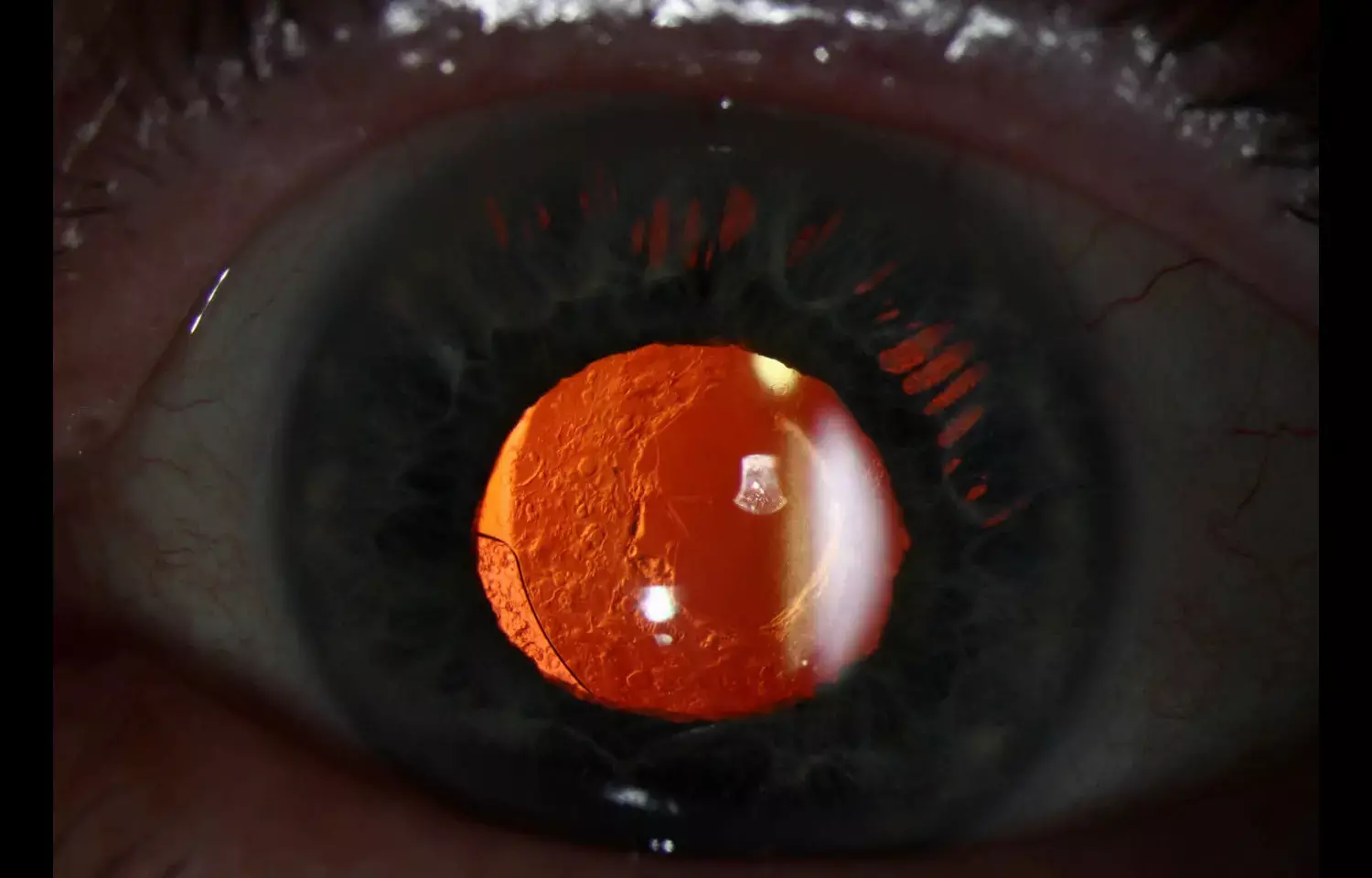- Home
- Medical news & Guidelines
- Anesthesiology
- Cardiology and CTVS
- Critical Care
- Dentistry
- Dermatology
- Diabetes and Endocrinology
- ENT
- Gastroenterology
- Medicine
- Nephrology
- Neurology
- Obstretics-Gynaecology
- Oncology
- Ophthalmology
- Orthopaedics
- Pediatrics-Neonatology
- Psychiatry
- Pulmonology
- Radiology
- Surgery
- Urology
- Laboratory Medicine
- Diet
- Nursing
- Paramedical
- Physiotherapy
- Health news
- Fact Check
- Bone Health Fact Check
- Brain Health Fact Check
- Cancer Related Fact Check
- Child Care Fact Check
- Dental and oral health fact check
- Diabetes and metabolic health fact check
- Diet and Nutrition Fact Check
- Eye and ENT Care Fact Check
- Fitness fact check
- Gut health fact check
- Heart health fact check
- Kidney health fact check
- Medical education fact check
- Men's health fact check
- Respiratory fact check
- Skin and hair care fact check
- Vaccine and Immunization fact check
- Women's health fact check
- AYUSH
- State News
- Andaman and Nicobar Islands
- Andhra Pradesh
- Arunachal Pradesh
- Assam
- Bihar
- Chandigarh
- Chattisgarh
- Dadra and Nagar Haveli
- Daman and Diu
- Delhi
- Goa
- Gujarat
- Haryana
- Himachal Pradesh
- Jammu & Kashmir
- Jharkhand
- Karnataka
- Kerala
- Ladakh
- Lakshadweep
- Madhya Pradesh
- Maharashtra
- Manipur
- Meghalaya
- Mizoram
- Nagaland
- Odisha
- Puducherry
- Punjab
- Rajasthan
- Sikkim
- Tamil Nadu
- Telangana
- Tripura
- Uttar Pradesh
- Uttrakhand
- West Bengal
- Medical Education
- Industry
YAG Laser Capsulotomy Linked to Higher Risk of Diabetic Retinopathy Progression, suggests study

A recent study published in the Journal of Cataract & Refractive Surgery found that Yttrium Aluminum Garnet (YAG) laser capsulotomy, commonly performed after cataract surgery to clear posterior capsule opacification, may increase the risk of worsening diabetic retinopathy in patients with diabetes. Researchers observed that patients with nonproliferative diabetic retinopathy who underwent YAG laser treatment had a notably higher likelihood of progressing to proliferative stages and developing vision-threatening complications.
Patients aged ≥18 years with type 1 or 2 diabetes and NPDR who underwent cataract surgery with or without subsequent YAG laser capsulotomy were identified. Patients were followed for 1 year post-cataract surgery. Exclusion criteria included less than 6 months of follow-up. Primary outcomes included development of proliferative DR (PDR), vitreous hemorrhage (VH), tractional retinal detachment (TRD), neovascular glaucoma (NVG), and need for panretinal photocoagulation (PRP) or pars plana vitrectomy (PPV).
The study highlighted that YAG laser capsulotomy, while generally considered a safe and routine post-cataract procedure, could potentially alter intraocular conditions that exacerbate retinal vascular stress in diabetic eyes. These changes may accelerate disease progression by influencing inflammatory and oxidative pathways. The authors suggested that careful patient selection, preoperative retinal evaluation, and close follow-up after laser treatment are crucial to minimize risks in individuals with diabetic eye disease.
The researchers concluded that ophthalmologists should weigh the benefits of improved visual clarity against the potential for retinopathy progression when considering YAG laser capsulotomy in diabetic patients. They also emphasized the need for further long-term, controlled studies to clarify the mechanism and magnitude of this risk. Early identification of high-risk patients and timely intervention could help prevent vision loss and optimize long-term outcomes.
Reference:
Lee, H., Park, J., & Kim, S. (2025). Risk of diabetic retinopathy progression following YAG laser capsulotomy in patients with nonproliferative diabetic retinopathy. Journal of Cataract & Refractive Surgery, 51(10), 723–731. https://doi.org/10.1097/j.jcrs.0000000000000723
Dr. Shravani Dali has completed her BDS from Pravara institute of medical sciences, loni. Following which she extensively worked in the healthcare sector for 2+ years. She has been actively involved in writing blogs in field of health and wellness. Currently she is pursuing her Masters of public health-health administration from Tata institute of social sciences. She can be contacted at editorial@medicaldialogues.in.
Dr Kamal Kant Kohli-MBBS, DTCD- a chest specialist with more than 30 years of practice and a flair for writing clinical articles, Dr Kamal Kant Kohli joined Medical Dialogues as a Chief Editor of Medical News. Besides writing articles, as an editor, he proofreads and verifies all the medical content published on Medical Dialogues including those coming from journals, studies,medical conferences,guidelines etc. Email: drkohli@medicaldialogues.in. Contact no. 011-43720751


